One of the main things that separate us men from women is the fact that we have about x8 more testosterone. Logically, we guys want to be as manlier as we can be and big T is a great starting point. As a result, a very logical question arises – how do we optimize our T in a normal and natural way?
How to Increase Testosterone Naturally:
- Engage in physical exercise and weightlifting (1)
- Decrease your cortisol and stress levels (2)
- Get enough restful sleep (3)
- Stop drinking alcohol (4)
- Use testosterone boosting supplements (5)
- Add more healthy and saturated fats to your diet (6)
- Focus on living healthy and stay away from estrogen-like chemicals (7)
- Reduce your body fat levels (8)
Note that all of these methods for boosting your T levels naturally have been backed by science.
However, continue reading below to learn more about the general categories that affect our testosterone such as lifestyle and age!
Increasing Testosterone Naturally and Quickly
Here are five science-backed methods for skyrocketing your masculinity in a quick and natural manner:

1. Get More Vitamin D
Whether it’s in the form of a supplement or by stimulating your body to produce it via direct exposure to sunlight.
Regardless, the most important thing is to simply get your hands on more Vitamin D.
Researchers have found that supplementing with 3,000 UI of Vit. D can potentially increase your testosterone levels by a significant amount (9).
But in case you decide to receive Vitamin D from the sun, make sure to directly expose your skin to the sun rays as that’s how you stimulate your body to produce more of it!
That’s because hiding behind a glass blocks UVB rays that stimulate your body to produce this vitamin.
Overall, sunlight and testosterone go hand in hand and Vitamin D is the bridge between the two.

2. Start Weightlifting (Working Out)
In case you didn’t know, working out has been scientifically proven to elevate testosterone levels.
Not just working out though, scientists are specific.
Lifting heavy weights is the most optimal way to catapult your T in a fast and efficient way (10)!
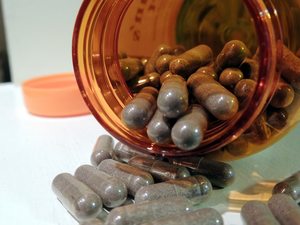
3. Try Testosterone Boosters
First and foremost, testosterone boosting supplements are NOT steroids, nor are they illegal.
They’re natural supplements that are meant to help your body (or testicles to be more precise) produce more testosterone
There are lots of great products out there that contain tested and proven ingredients that should help naturally boost your T.
I’ve personally tried it and simply loved it as it helped me to achieve harder erections while looking and feeling manlier.

4. Cut Back On Alcohol Consumption
Being intoxicated is never a good idea, nor is it healthy.
There’s more than enough scientific data pointing out the fact that alcohol-related intoxication lowers plasma testosterone levels (11).
Besides, alcoholic beverages pretty much contain empty calories that will most likely turn into body fat once they end up in your system – beer belly anyone?

5. Eat More Testosterone-Friendly Foods
Certain foods can help you with optimizing your T levels, mainly:
-
Oysters
-
Coconut oil
-
Pomegranate
-
Eggs
-
Olive oil
Now, something else that does help is juicing (not ‘juicing’ as in taking anabolic steroids).
In fact, I’ve been juicing to gain an advantage in terms of achieving a more androgen-friendly environment in my body.
And I’m still utilizing it today, although it’s literally juicing – not ‘juicing’ as in taking anabolic steroids.
I even wrote a review about a book about juicing for more testosterone (real juicing, not steroids).
It’s a book with recipes and some cool added features which you might find interesting in your search for a natural solution to low T, more T, libido problems etc.
Increasing your testosterone production without anabolic steroids or drugs is possible – you only need the right tools to make it happen!
Now, time to look at some extravagant suspects that when taken care of could lead to your testosterone naturally going UP!
This is how certain aspects affect your T… Downwards it is!

The Testosterone Boosting Foods List [Top 7 Picks]
Below we’ve hand-picked 7 evidence-based foods that boost testosterone!
1. Olive Oil
Olive oil is a staple in Mediterranean cuisine and diet and it comes with a wide variety of benefits.
More specifically, extra-virgin olive oil is loaded with Vitamin E, which is a powerful antioxidant and a healthy fatty acid.
Research done on the subject reveals that men who consumed extra-virgin olive oil experienced an almost 20% increase in T levels (12).
Olive oil also improves the luteinizing hormone, which aids testosterone production indirectly by stimulating the testicles to produce more T.
2. Oyster
Oysters might not have a direct impact on testosterone production, but they are jam-packed with something that does.
And that’s Zinc, which is an essential mineral with a crucial role in male sexual function.
Zinc deficiency is related to hypogonadism i.e. impaired testosterone production (13).
This makes Zinc essential for our hormonal health and while oysters are the best natural source of this mineral, there are other foods that contain plenty of Zinc, such as:
- Shellfish in general
- Poultry
- Nuts
- Red meat
This mineral is also found in the best testosterone booster for men over 50.
3. Pomegranate
The pomegranate is a delicious red fruit that’s known for its antioxidant properties.
However, there is solid scientific data to support any claims that pomegranates can boost testosterone levels in men.
A study published in a 2012 edition of Endocrine Abstracts shows that after 14 days men who drank pomegranate juice saw 24% average increase in their T levels (14).
Moreover, the participants in this study also enjoyed an improved mood and overall well-being as a result of drinking pure pomegranate juice for 2 weeks straight.
4. Ginger
Ginger has a lengthy history of being used as an alternative medicine to fight inflammation and general illness.
And while it might not taste great when consumed on its own, ginger root can be a great addition to your diet if you want higher T levels.
A 2012 research courtesy of the The Medical Journal of Tikrit University shows that supplementing with ginger for 3 months can boost T levels by almost 18% (15).
Not only that but the participants (adult men with fertility problems) also experienced an increase in semen volume.
5. Spinach
Popeye’s favorite food is often associated with large biceps and masculinity for a reason.
This leafy green vegetable is loaded with vital nutrients such as iron, vitamin B6 and magnesium.
According to a 2011 study from the International Journal of Andrology, magnesium levels are strongly assocaited with testosterone levels (16).
Kale and Swiss chard are other leafy greens that contain plenty of magnesium.
6. Banana
Bananas are a tasty source of various quality nutrients.
One of the great things that bananas contain is the enzyme called bromelain.
In a 2016 study conducted by the European Journal of Sports Science, bromelain helped cyclists maintain their testosterone concentrations throughout a race (17).
Another benefit of bromelain that researchers observed was the reduction of the subjective feelings of fatigue.
7. Onion
Onions are a great source of powerful antioxidants.
And while they also give off a very powerful bad breath, you might want to give them a chance for their T-boosting abilities.
A 2019 scientific review concludes that onions can indeed enhance testosterone production in men, although further human trials are required (18).
These testosterone-boosting effects are the result of onions’ benefits on luteinizing hormone production and improved antioxidant defense.

What are the Main Aspects Affecting Testosterone Levels?
There are a lot of things involved in lowering your T, but they all fall under 3 main categories:
-
Personal Health
-
Age
-
Habits & lifestyle
By giving these three the attention they deserve, you will be able to determine which of them needs tweaking in order to elevate your King of Hormones.
Of course, it’s not possible to directly change the year you were born (I’m sure some will argue they can).
But I’ll explain to you how you can still be the MAN even if you’re older:

1. Personal Health
Fellow men, I want you to give an honest answer to three vital questions, okay?
-
Do you drink (not urine and/or other filthy stuff, clearly)
-
Do you smoke (cigarettes, thought of something else?)
-
Do you take any prescription medications (not medical weed, sorry)
Without going into too many details about some of the aforementioned specifics, if you DID answer yes to either 1. or 2., 3 (medication-specific) or all – we have things to discuss then!
1.1 Alcohol

I just HAVE to kick off with the cause of one of the worst cases of addiction in our age – alcohol.
Slamming a drink just feels so good to you, doesn’t it?
Guess what bro, a glass of wine or a beer or two might be alright.
But chugging down massive amounts of booze (especially on a Friday night) could prove to be disastrous for your optimal T levels, as I already mentioned earlier in this post.
Another thing, if you’ve been an avid liquor lover for some time then I’ve got some bad news for you.
There’s evidence suggesting that alcoholics are usual victims of hypogonadism (an impaired function of the testes) (19).
Ouch, just the thought of this makes my hair on the back of my neck stand up!
To be perfectly honest with you here, I’m not a huge fan of alcohol so you won’t hear me encouraging you to consume alcohol, especially some of the stronger stuff.
That’s not to say that from now on you have to totally avoid booze like the plague.
It’s just that by using the capacity of your brain, you can see without a doubt that this is detrimental to your goals of naturally upping testosterone.
To put it in a conclusive way – when it comes to our primary male hormone, it’s either the glass or your testosterone!
1.2 Smoking
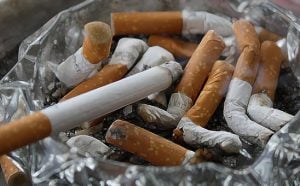
Focusing on tobacco now, as its effects on overall T values in the body are contradicting and many people have mixed feelings on the subject.
There are a bunch of studies conducted on this matter, but I don’t want to bore you to death with too many scientific terms or data.
There’s just this one research handled by some Englishmen, which suggests that there might be a correlation between smoking and lower levels of total and free T by the indirect contribution of SHMG (sex hormone-binding globulin).
Still, other studies show conflicting info – smoking cigarettes doesn’t have a significant impact on testosterone (20).
Who do we believe then you might ask? Saying both and going out for a smoke because who cares would not be an optimal answer for me.
After confessing that I’m not an alcoholic I will now reveal that I’m not a smoker as well.
Don’t worry though, I have my vices – as everyone else does!
Decide for yourself if you want to inhale this poison i.e. cigarettes – just think about all the negative aspects and risk factors associated with smoking ranging from various forms of cancer to heart disease (21).
One of these risk factors is the vasoconstricting (constriction of blood vessels) effect of nicotine which affects your whole system.
But you will most likely notice problems with getting the plane airborne if ya catch my drift.
But comes a crucial part of your personal health:
1.3 Medications
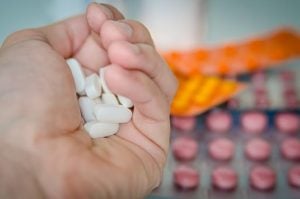
Fasten your seatbelts, the ride is getting bumpy guys!
If you suffer from conditions like high blood pressure, infections or just particular pain relievers, then I’ve got some BAD news for you!
Here are the top antagonists to watch out for (they’re all scientifically proven to affect T in a negative way):
-
Statins – used widely for dealing with hypercholesterolemia and dyslipidemia (funky terms, yeah). They might lower your LDL (bad) cholesterol, increase your HDL (good) one and such, but your testosterone will not like them at all (22)!
-
Opioids – pain relievers, the most well-known of them being morphine. They definitely ease one’s pain, although at a cost. These medications bother your luteinizing hormone and we all know that this hormone is responsible for the creation of T from Leydig cells in your balls (23).
-
Ketoconazole – this one is for treating different fungi or yeast infections. This study with the scary title “Ketoconazole blocks testosterone synthesis” is enough I believe (24).
If you are currently on any of these medications or a combination of them for some reason, don’t panic by this info and don’t just throw them all out or stop taking them!
By no means am I giving medical advice here – listen to your doc, because stuff like high BP is no joke.
What I wanted was to merely point out how you can boost your T by keeping in mind that certain medications can mess up with your hormones.
If your doctor allows it, a change of medications might be a reasonable choice.
This can help with your testosterone levels, but always consult with a specialist before making any changes to your medicine intake!
2. Age
Forget all the bogus claims that older men necessarily have lower levels of T.
Every man is carrying unique amounts of testosterone in his body and besides, our manhood is greatly determined as early as being in our mother’s womb.
Sure, the levels of our primary male hormone do start to decline after approximately 30 years of age.
Testosterone levels drop by around 1% each year (after 30), which really adds up the older you get.
But hey, if anything this info should spark your enthusiasm for change – for more testosterone!
You can also check my detailed article on the normal testosterone levels for men!
Honestly, this 1% annually (after 30) is not such a huge chunk taken out of your virility, although it might be noticeable.
Remember – even if you are for example 50 at the moment, you can bet your house that you might actually have more T than younger folks.
Curious how age is related to a way of boosting your T in a natural way?
A decline in testosterone levels is a normal part of the natural aging process.
So to stir this sub-topic in the right direction, I want to point out that I DID NOT include age in order to push some cutting-edge, latest-tech, end game, the fountain of youth kind of pill!
That’s correct, it applies to all of you older folks out there.
You are more than capable of adjusting your vices and daily routines in order to achieve a more androgen-friendly environment in your system.
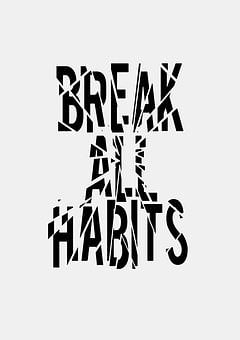
3. Habits & Lifestyle
Be it good or bad habits, our mission is to convert the negative ones into positive ones as well as to stack on these pleasant habits!
We’re all sinners obviously but please be so kind as to give me a few paragraphs, to illustrate in a way what I’m referring to.
Do you truly desire a natural optimization of your primary male hormone?
Then carefully consider adjusting bad habits so that they transform into good ones, such as:
-
Watching certain movies (those romantic types…)
-
Consuming xenoestrogens (they’re almost everywhere)
-
Not getting enough rest (sleep)
-
Being a drunkard (check the Health Status part again)
-
Not being physically active (being fat=more estrogen)
It’s rather unfortunate that simply starting from scratch is almost mission impossible (pun intended).
Can you stop being an alcoholic in the blink of an eye?
Are you able to simply engage in vigorous workouts all of sudden, after spending years on your comfy couch?
Not as easy as it sounds.

Research Shows That Bottled Mineral Water is Packed With Estrogens
A study conducted by Environmental Science and Pollution Research found that substances that leach from the plastic bottles of mineral water act as estrogens!
Or in other words, drinking bottled (plastic) water means that you might be ingesting endocrine disruptors such as xenoestrogens.
Xenoestrogens are hormone disruptors and the EXACT opposite of testosterone optimization.
Commercially-raised products like meat and dairy ones are packed with xenoestrogens – growth hormones, antibiotics for the animals etc.
Oh, you like to drink tap water?
Good, enjoy your estrogen-imitating xenohormone then.
Now be as fast as lightning and buy yourself a proper filter, install it and thrive!
I almost forgot – ditch plastic bottles, and store your water in glass ones.
Plastics are treated with chemicals such as phthalates which are a type of xenoestrogens!
“Mistakes are always forgivable, if one has the courage to admit them”
– Bruce Lee
Try to grasp this brilliant quote by Mr. Lee himself and focus on your bad habits, your mistakes.
Each one is disturbing your male hormonal balance, in particular, your T levels.
By making the desired adjustments that I highlighted you are BOUND to increase your testosterone in a perfectly natural way!

FAQs
1. What is normal testosterone by age?
The normal testosterone levels by age for male adults, according to Mayo Clinic Labs is:
- 17 to 18 years – 300 to 1,200 ng/dL
- 19 years or older – 240 to 950 ng/dL
As a general rule of thumb, if your T levels fall between 300-1000 ng/dL you should be fine.
But as you grow older your levels will inevitably begin to drop and low testosterone might become a real threat.
2. How can I test my testosterone levels at home?
You can test your own testosterone levels in the comfort of your home via what is known as at-home testosterone testing kits.
The most common types of home tests available include (from the most to the least accurate):
- Blood
- Saliva
- Urine
They come with sample instructions and information about mailing your results to a laboratory.
Yes, once you complete the test you’ll have to send your collections to a lab to measure your results.
A study published in the Annals of Clinical Biochemistry suggests that salivary testosterone tests may be a reliable alternative to blood samples, although it’s implied that further research is needed.
I’d personally recommend getting a serum testosterone test (blood sample) for the most accurate measurement of your current testosterone levels.
However, if you faint every time you see blood then your best bet would probably be to use a saliva-based test.
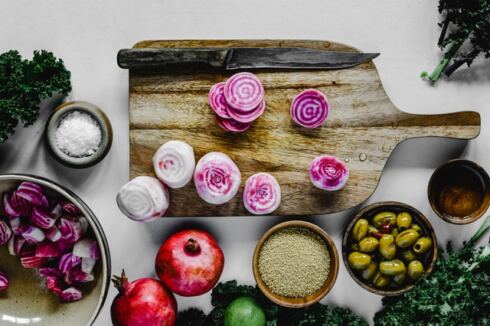
3. Which foods increase testosterone the most?
As previously mentioned, the science-backed foods to boost testosterone levels the most are:
- Olive oil
- Oysters
- Pomegranates
- Gingers
- Spinaches
- Bananas
- Onions
Another great thing about these foods is that they’re super easy to find, maybe with the only exception being oysters, which are considered exotic food.
But if you can’t find any oysters, simply buy some red meat as it also contains lots of zinc.
4. Which foods kill testosterone?
These are the top 5 foods that can potentially lower your testosterone levels:
- Processed foods (junk food) – A 2014 scientific article from the Human Reproduction journal found that trans fats (junk foods are packed with them) can lead to lower testosterone and semen quality (25)
- Soy (soy-based products) – Men who consumed soy protein isolate for 54 days as part of a 2005 study experienced reduced T levels (26)
- Licorice root – A 2003 study by German scientists on licorice consumption and androgen hormones in men found that participants who took 7 grams of licorice root every day saw a 26% decrease in T levels after a week (27)
- Flaxseed – The large number of lignans (plant compounds) found in flaxseed have been shown to bind to testosterone, which is then excreted with the lignans via urine (28)
- Mint – A 2010 study focused on spearmint herbal tea has found that participants who drank spearmint tea twice a day for 30 days saw a significant drop in free and total T levels, although the participants were women (29)
While the foods mentioned above can definitely have a negative impact on your male hormone production, some studies have to be taken with a grain of salt.
As in the case of mint, which lacks any in-depth research with male participants.

5. Does masturbation decrease testosterone?
No, although a 2001 study courtesy of the World Journal of Urology concluded that refraining from masturbation for 3 weeks elevates T levels (30).
Or to put it simply, abstaining from masturbation-induced orgasm can be a good thing for your testosterone levels in the long term.
However, an old study published in the Journal of Endocrinology back in 1972 found that masturbation doesn’t have a big impact on plasma T levels (31).
As you can see, this somewhat conflicting information can leave you bewildered.
But if you want my personal advice – stop masturbating and find a fine lady that you can have great sex with.
The link between sexual intercourse and an increase in testosterone is well-documented in scientific papers (32)
6. Do bananas increase testosterone?
Yes, bananas can indirectly boost your testosterone since they contain bromelain.
Bromelain is an enzyme that’s mainly found in foods like pineapples and… you guessed it – bananas.
Relevant scientific data shows that bromelain plays a role in supporting testosterone levels in men (33).
On top of that, bananas also contain very decent amounts of magnesium and vitamin B6.
And magnesium and vitamin B6 have scientifically-validated testosterone-boosting abilities (34).
7. What vitamins help produce testosterone?
The vitamins that have the greatest evidence-based impact on testosterone production are Vitamin D and Vitamin B6, although Vitamin D is technically a hormone.
Here is what relevant studies show:
- Vitamin D has a significant and presumably direct effect on testosterone production according to a 2020 study (35)
- Vitamin B6 plays a role in regulating sex hormones, it lowers prolactin levels that stimulate the hypothalamus to make more testosterone and this vitamin is also a cofactor of dopamine synthesis, which has an impact on T levels (36, 37)
Note that we’ve only included studies with human participants here.
There are other vitamins with potential T-boosting effects such as Vitamin K, but they lack human trials.
So if we exclude research involving rats, then Vitamin D and Vitamin B6 are definitely the best vitamins involved in testosterone production.
8. What is testosterone and why is it important?
Testosterone is a hormone produced by the testes in males and in smaller amounts by the ovaries in females.
It plays a crucial role in the development of male sexual characteristics, such as deepening of the voice, growth of facial and body hair, and muscle growth.
Testosterone also plays a role in maintaining bone density, red blood cell production, and overall mood and well-being.
9. How can I naturally increase my testosterone levels?
There are several ways to naturally increase testosterone levels, including:
- Regular exercise, especially weightlifting and high-intensity interval training
- Eating a healthy diet that includes plenty of protein, healthy fats, and whole foods
- Getting enough sleep, ideally 7-8 hours per night
- Reducing stress through techniques like meditation, yoga, or deep breathing
- Taking supplements such as vitamin D, zinc, and ashwagandha, which have been shown to boost testosterone levels
10. Can losing weight help increase testosterone levels?
Yes, losing weight can help increase testosterone levels, especially in men who are overweight or obese.
This is because excess body fat can lead to an increase in the production of the hormone estrogen, which can lower testosterone levels.
Losing weight through diet and exercise can help reduce estrogen levels and increase testosterone levels.
11. Are there any lifestyle habits that can lower testosterone levels?
Yes, there are several lifestyle habits that can lower testosterone levels, including:
- Lack of exercise or physical activity
- Poor diet, especially one that is high in processed foods and low in protein and healthy fats
- Lack of sleep or poor sleep quality
- Chronic stress or high levels of cortisol, which is a hormone that can lower testosterone levels
- Excessive alcohol consumption
- Smoking or using other tobacco products.
Conclusion
Lastly – yes, you can most definitely boost testosterone naturally.
This is possible by making the specific lifestyle and habitual changes, while also limiting or better yet avoiding risk factors like alcohol.
But to sum things up, concentrate on natural testosterone-boosting aspects such as:
- Exercise and weightlifting
- Lower stress and cortisol
- Get enough quality sleep
- Avoid alcohol
- Try testosterone boosters
- Include healthy fats in your diet
- Steer clear of estrogen-like compounds
- Reduce your body fat levels
All of these factors can help you to enjoy a healthier and above all manlier life as a man.
Now, do you have any additional questions?
Did we adequately answer the question of how to boost testosterone levels naturally?
Or do you simply want to share your own top method for naturally enhancing T production?
Drop a comment below in the section below!
References:
- https://www.ncbi.nlm.nih.gov/pubmed/28470410
- https://pubmed.ncbi.nlm.nih.gov/6348068/
- https://jamanetwork.com/journals/jama/fullarticle/1029127
- https://pubs.niaaa.nih.gov/publications/arh25-4/282-287.htm
- https://www.ncbi.nlm.nih.gov/pubmed/21154195
- https://pubmed.ncbi.nlm.nih.gov/9029197/
- https://pubmed.ncbi.nlm.nih.gov/25121464/
- https://www.onlinelibrary.wiley.com/doi/abs/10.1111/cen.12018
- https://www.ncbi.nlm.nih.gov/pubmed/21154195
- https://www.ncbi.nlm.nih.gov/pubmed/21154195
- https://www.ncbi.nlm.nih.gov/pubmed/894528
- https://pubmed.ncbi.nlm.nih.gov/23472458/
- https://ods.od.nih.gov/factsheets/Zinc-HealthProfessional/
- https://www.endocrine-abstracts.org/ea/0028/ea0028p313
- https://www.iasj.net/iasj?func=fulltext&aId=71548
- https://pubmed.ncbi.nlm.nih.gov/21675994/
- https://pubmed.ncbi.nlm.nih.gov/25604346/
- https://www.ncbi.nlm.nih.gov/pmc/articles/PMC6406961/
- https://www.ncbi.nlm.nih.gov/pubmed/9046385
- https://www.ncbi.nlm.nih.gov/pubmed/11352783
- https://www.ncbi.nlm.nih.gov/books/NBK65866/
- https://www.ncbi.nlm.nih.gov/pubmed/23448151
- https://www.ncbi.nlm.nih.gov/pubmed/22786453
- https://www.ncbi.nlm.nih.gov/pubmed/6291475
- https://www.ncbi.nlm.nih.gov/pmc/articles/PMC3923511/
- https://pubmed.ncbi.nlm.nih.gov/15735098/
- https://pubmed.ncbi.nlm.nih.gov/14520600/
- https://pubmed.ncbi.nlm.nih.gov/2826899/
- https://pubmed.ncbi.nlm.nih.gov/19585478/
- https://pubmed.ncbi.nlm.nih.gov/11760788/
- https://joe.bioscientifica.com/view/journals/joe/52/1/joe_52_1_005.xml
- https://pubmed.ncbi.nlm.nih.gov/1529008/
- https://www.tandfonline.com/doi/full/10.1080/17461391.2014.1001878
- https://www.endocrine-abstracts.org/ea/0056/ea0056p665
- https://pubmed.ncbi.nlm.nih.gov/31953167/
- https://www.jbc.org/article/S0021-9258(19)50599-3/pdf
- https://www.ncbi.nlm.nih.gov/pmc/articles/PMC1513048/
- https://www.mayoclinic.org/diseases-conditions/male-hypogonadism/symptoms-causes/syc-20354881
- https://www.ncbi.nlm.nih.gov/pubmed/11352783
- https://www.health.harvard.edu/drugs-and-medications/testosterone–what-it-does-and-doesnt-do
- https://www.sciencedirect.com/topics/pharmacology-toxicology-and-pharmaceutical-science/androgen
- https://pubmed.ncbi.nlm.nih.gov/19274472/
- https://link.springer.com/chapter/10.1007/978-3-642-29687-1_1
- https://www.mayocliniclabs.com/test-catalog/Clinical+and+Interpretive/83686
- https://www.ncbi.nlm.nih.gov/pmc/articles/PMC5029560/
I've been fascinated by natural male hormone optimization since 2016. And ever since I've been going through boatloads of different meta-analyses and scientific data associated with increasing testosterone levels naturally. I hold a PhD degree in public health and have 10+ scientific publications on Google Scholar. Thus, in my collective work here you'll find helpful tricks, natural remedies, detailed product reviews (including stuff I've personally tried)... and more!
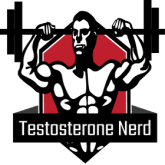
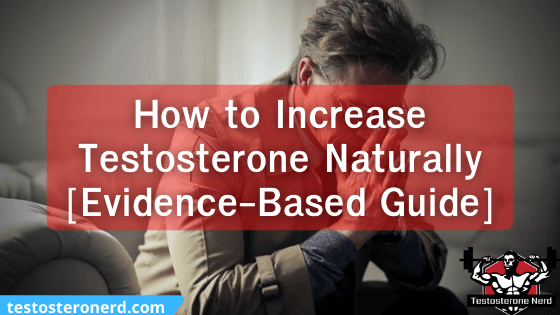



Very thorough and informative article. I think low testosterone is an issue for many men today and they don’t even realize it. Thank you for sharing this!
Hi Terry and welcome aboard!
I appreciate the kind words.
Indeed, low testosterone is a common problem for men across the world nowadays.
But thankfully, we can utilize these awesome natural methods to increase testosterone levels to support our hormonal and overall health.
Cheers and God bless,
— Simon